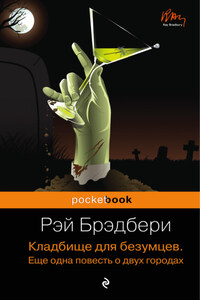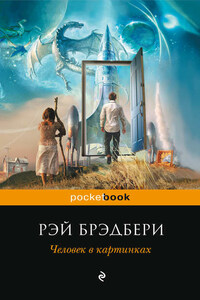It was a special pleasure to see things blackened and changed. With the brass nozzle in his fists, with this great python spitting kerosene upon the world, he looked like some amazing conductor wearing a symbolic helmet numbered 451 on his head. He flicked the igniter and the house jumped up in a fire that burned the evening sky red, yellow, and black. The books went up in sparkling whirls and blew away on a wind.
Montag grinned.
He knew that when he returned to the firehouse, he might wink at himself, a minstrel man[1], in the mirror. Later, going to sleep, he would feel the fiery smile still gripped by his face muscles, in the dark. It never went away, that smile, it never ever went away, as long as he remembered.
He hung up his black helmet and shined it, he hung his flameproof jacket neatly; he showered with great pleasure. Then he walked out of the fire station and along the midnight street toward the subway where the silent, air-propelled train slid soundlessly down the tube in the earth and let him out to the escalator rising to the suburb.
Whistling, he walked out into the still night air. He walked toward the corner. Before he reached the corner, however, he slowed as if someone had called his name.
The last few nights he had had the most uncertain feelings about the sidewalk just around the corner here, moving toward his house. He had felt that a moment before he made the turn, someone had been there. There was no understanding it. Each time he made the turn, he saw only the white, unused sidewalk.
But now, tonight, he slowed almost to a stop. He turned the corner.
The autumn leaves blew over the pavement in such a way as to make the girl who was moving there seem fixed to a sliding walk, letting the motion of the wind and the leaves carry her forward. Her face was slender and milk-white; the dark eyes were so fixed to the world that no move escaped them. Her dress was white and it whispered. He almost thought he heard the motion of her hands as she walked. She was a moment away from a man who stood in the middle of the pavement waiting.
The girl stopped. She stood looking at Montag with eyes so dark and shining and alive, that he felt he had said something quite wonderful. But he knew his mouth had only moved to say hello, and then when she seemed hypnotized by the salamander on his arm and the phoenix-disc on his chest, he spoke again.
“Of course,” he said, “you’re a new neighbor, aren’t you?”
“And you must be” – she raised her eyes from his professional symbols – “the fireman.”
“How oddly you say that.”
“I could say it with my eyes shut,” she said, slowly.
“What – the smell of kerosene? My wife always complains,” he laughed. “You never wash it off completely.”
“No, you don’t,” she said.
“Kerosene,” he said, “is like perfume to me.”
“Does it seem like that, really?”
“Of course. Why not?”
She gave herself time to think of it. “I don’t know.” She turned to face the sidewalk going toward their homes. “Do you mind if I walk back with you? I’m Clarisse McClellan.”
“Clarisse. Guy Montag. Come along. What are you doing out so late wandering around? How old are you?”
They walked in the night on the silvered pavement and there was the faintest breath of fresh apricots and strawberries in the air, and he looked around and realized this was quite impossible, so late in the year.
There was only the girl walking with him now. Her face was as bright as snow in the moonlight.
“Well,” she said, “I’m seventeen and I’m crazy. My uncle says the two always go together. ‘When people ask your age,’ he said, ‘always say seventeen and insane.’ Isn’t this a nice time of night to walk? I like to smell things and look at things, and sometimes stay up all night, walking, and watch the sun rise.”
They walked on again in silence and finally she said, thoughtfully, “You know, I’m not afraid of you at all.”
He was surprised. “Why should you be?”
“So many people are afraid of firemen. But you’re just a man, after all[2]…”
Her face, turned to him now, was fragile milk crystal with a soft and constant light in it. And then Clarisse McClellan said:
“Do you mind if I ask? How long have you worked as a fireman?”
“Since I was twenty, ten years ago.”
“Do you ever read any of the books you burn?”
He laughed. “That’s against the law!”
“Oh. Of course.”
“It’s fine work. Monday burn Millay[3], Wednesday Whitman[4], Friday Faulkner[5], burn them to ashes, then burn the ashes. That’s our ofcif ial slogan.”
They walked still further and the girl said, “Is it true that long ago firemen put fires out instead of going to start them?”
“No. Houses have always been fireproof.”
“Strange. I heard once that a long time ago houses used to burn by accident and they needed firemen to stop the flames.”
He laughed.
She glanced quickly over. “Why are you laughing?”
“I don’t know.”
“You laugh when I haven’t been funny and you answer right of.f You never stop to think what I’ve asked you.”














